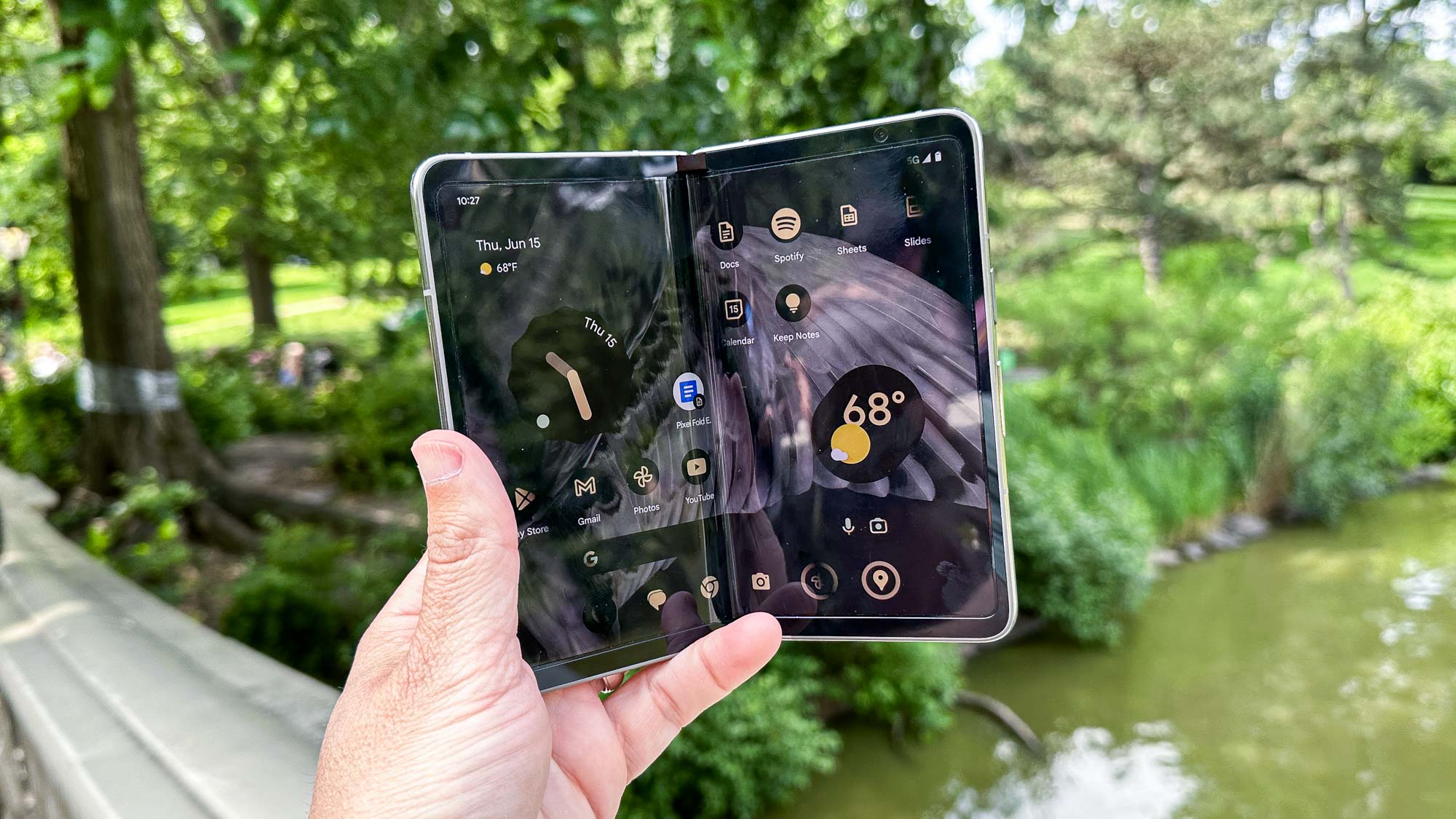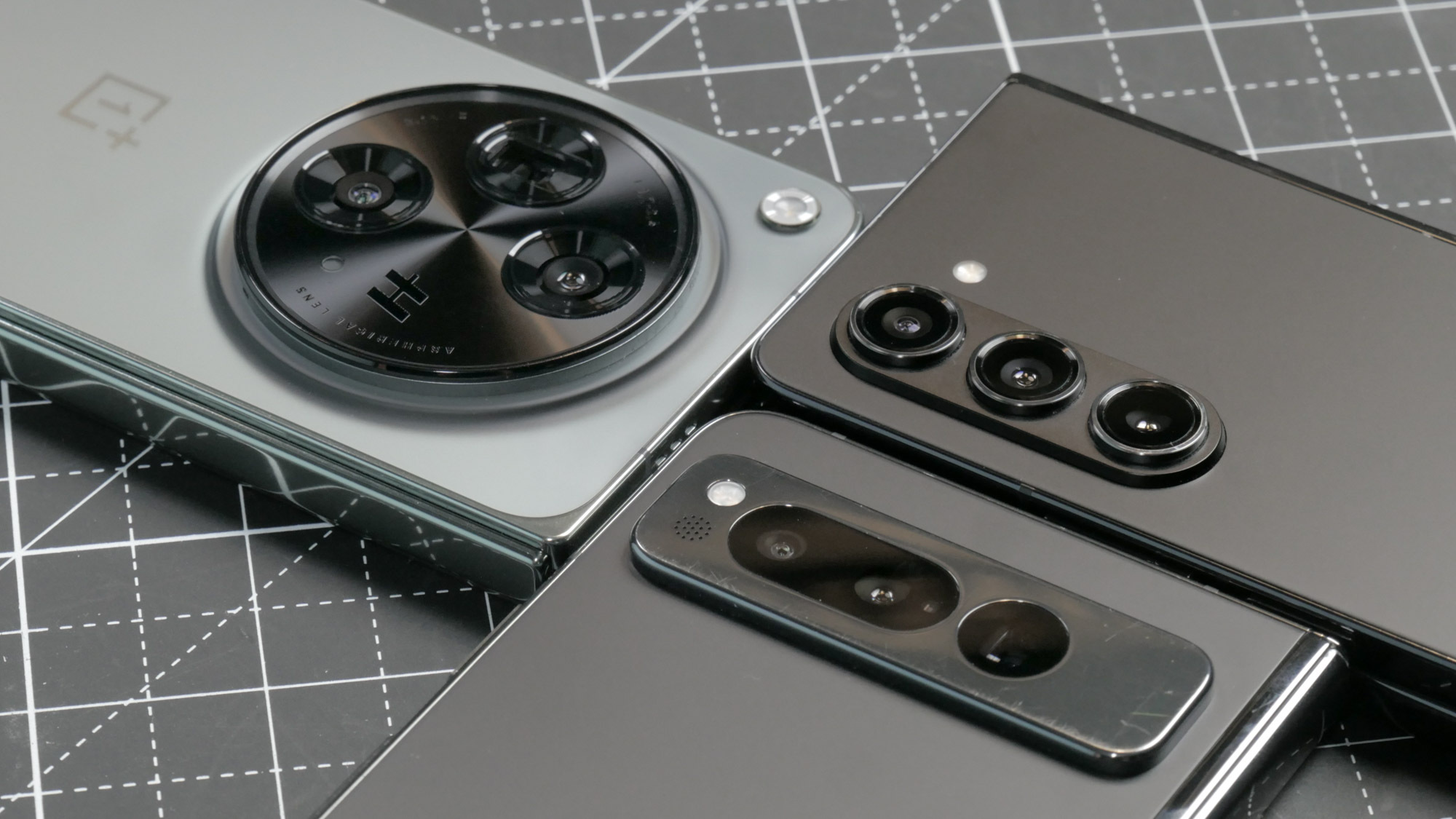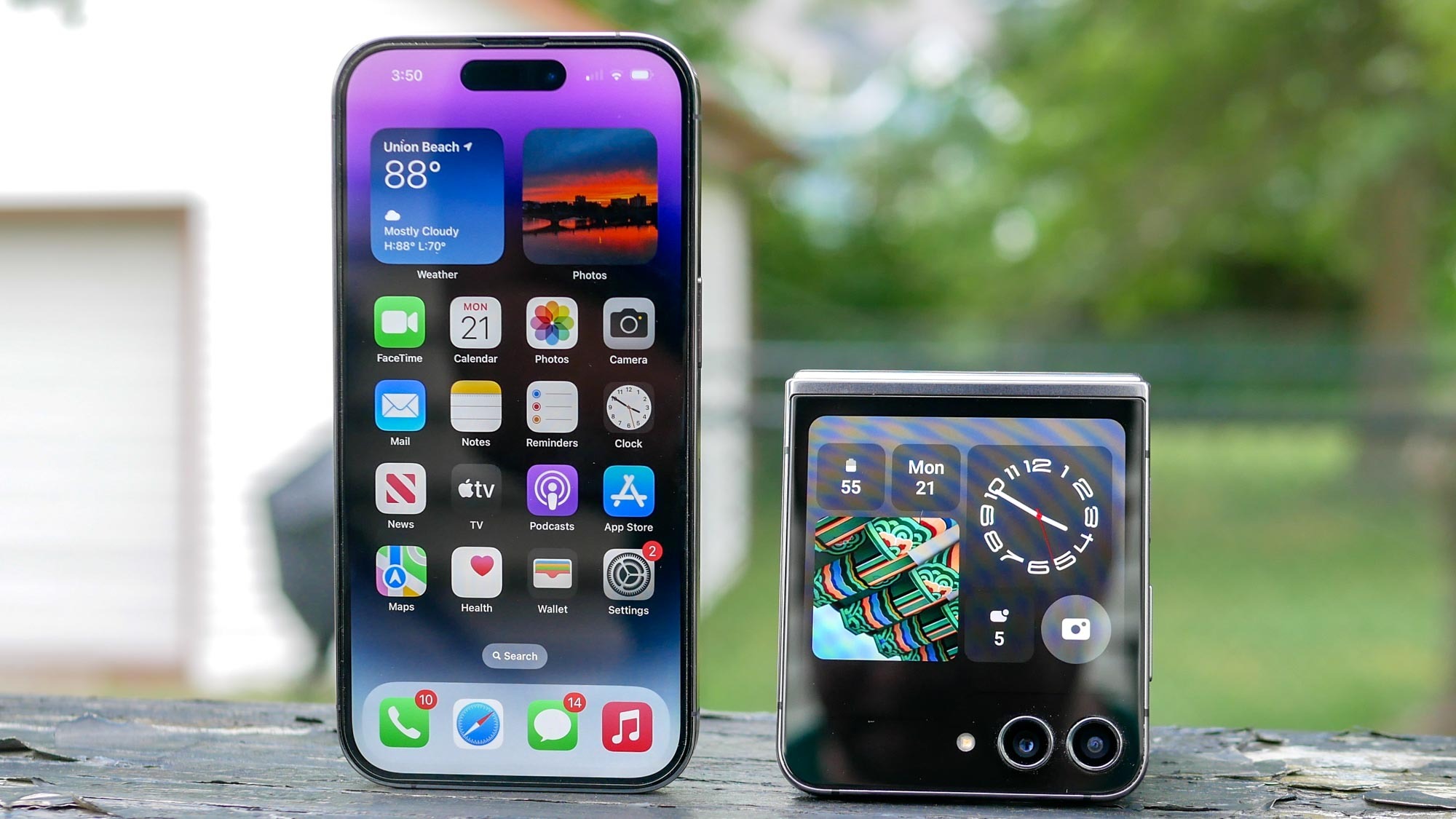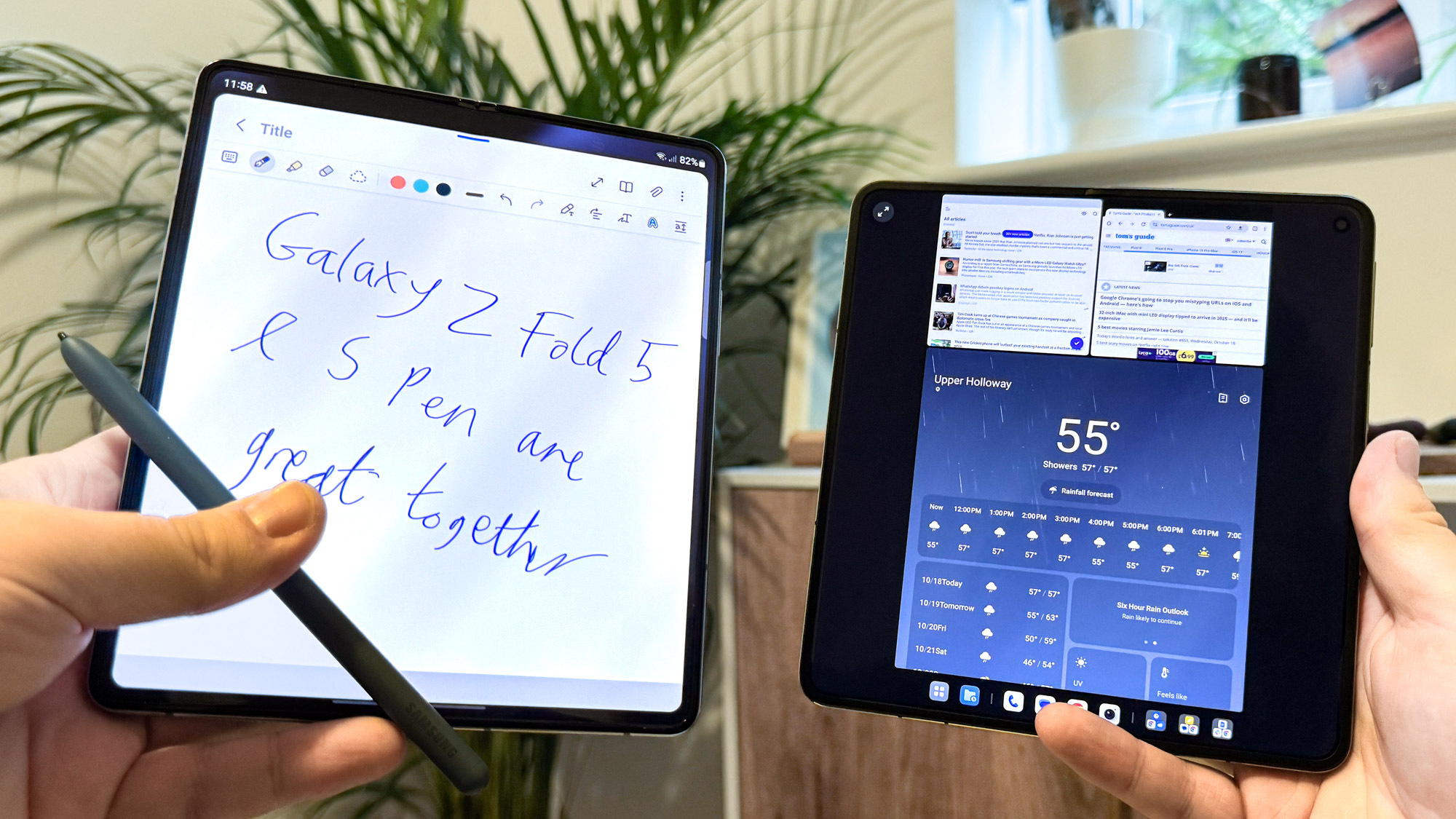Google Pixel Fold 2 could be renamed Pixel 9 Pro Fold — here’s why that’s a mistake
Google should let the Pixel Fold brand stand apart from other Pixel phones

Here at Tom’s Guide our expert editors are committed to bringing you the best news, reviews and guides to help you stay informed and ahead of the curve!
You are now subscribed
Your newsletter sign-up was successful
Want to add more newsletters?

Daily (Mon-Sun)
Tom's Guide Daily
Sign up to get the latest updates on all of your favorite content! From cutting-edge tech news and the hottest streaming buzz to unbeatable deals on the best products and in-depth reviews, we’ve got you covered.

Weekly on Thursday
Tom's AI Guide
Be AI savvy with your weekly newsletter summing up all the biggest AI news you need to know. Plus, analysis from our AI editor and tips on how to use the latest AI tools!

Weekly on Friday
Tom's iGuide
Unlock the vast world of Apple news straight to your inbox. With coverage on everything from exciting product launches to essential software updates, this is your go-to source for the latest updates on all the best Apple content.

Weekly on Monday
Tom's Streaming Guide
Our weekly newsletter is expertly crafted to immerse you in the world of streaming. Stay updated on the latest releases and our top recommendations across your favorite streaming platforms.
Join the club
Get full access to premium articles, exclusive features and a growing list of member rewards.
Earlier this week a rumor started circulating claiming that the Pixel Fold 2 may not be called the Pixel Fold 2. Instead it’s been suggested that Google may fold the phone into Pixel 9 series, turning the upcoming foldable into the Pixel 9 Pro Fold.
This rumor stems from the fact code that suggests Google is tweaking its 2024 release lineup — and the way phones are named. According to this code we’ll see the Pixel 9, Pixel 9 Pro, Pixel 9 Pro XL and the Pixel 9 Pro Fold. While these names aren’t final, it does suggest Google may end up treating the Pixel Fold 2 as a fourth Pixel 9.
That would be a mistake. Google needs to let the Pixel Fold range live its own life, and not stick it in the shadow of non-folding Pixel phones any more than it already is.
Keeping the Pixel Fold out of the Pixel’s shadow

If you look at the best foldable phones, you’ll find that they share something in common: they are their own unique brands that stand apart from the rest of the phones their makers may produce. The OnePlus Open is distinct from the OnePlus 12, Motorola’s Razr series has nothing to do with the myriad of phones it makes, and the Galaxy Z Fold 5 is pretty far removed from the Galaxy S24 and Galaxy S23.
The Pixel Fold was the same. The name tied it into the rest of Google’s Pixel lineup, suggesting common Pixel perks like fast software updates, features drops and so on, but the Fold part is what set the original Pixel Fold apart from the Pixel 7 and Pixel 8 series — for better or worse.
Adding the Pixel Fold range in with the regular Pixels almost feels as though Google is hiding it away, or that it should be playing second fiddle to the non-folding Pixels. In reality the two phone ranges are distinct enough that they can coexist side by side.
Pixels can be for the people who want the traditional Google phone experience, while the Fold is suited for anyone with money to burn and wants that tablet experience merged into their smartphone. Samsung has done something similar with the way it handles the Galaxy S and Galaxy Z series. The Galaxy S is that long-lived flagship phone that gets all the attention, while the Galaxy Z Fold is the modern phablet — taking over from the now defunct Galaxy Note series (RIP).
Get instant access to breaking news, the hottest reviews, great deals and helpful tips.
Not to mention the fact that officially declaring that the Pixel Fold 2 down to a “foldable Pixel 9 Pro” is doing it a disservice. Not only is the folding nature of the phone essentially relegated to gimmick levels, it automatically discounts all the other ways the phone could differentiate itself from the Pixel 9 Pro. We’re talking exclusive software features, differing hardware, and whatever other things Google may introduce on future iterations of the Pixel Fold. Maybe we’ll get stylus support one day, which will hopefully be sooner rather than later.
Parity automatically becomes a problem

Therein lies part of the problem. Naming an incoming Pixel Fold after a standard, non-folding Pixel means people are going to expect it to literally be a folding version of that Pixel. And as we’ve seen with foldable phones in the past, it’s easy to see absolute hardware parity between folding and non-folding phones.
Take the Samsung Galaxy Z Fold 5 as an example. It has many of the same attributes as the Galaxy S23 Ultra, like a Gorilla Glass Victus 2 and an adaptive 1-120Hz display, but they’re far from identical. It has a regular Snapdragon 8 Gen 2 chipset, rather than the overclocked “for Galaxy” variant the S23 series is powered by, alongside a totally different camera setup.
We’re talking 3 lenses instead of 4, since the Z Fold 5 lacks the extra telephoto lens with 10x optical zoom. It also misses out on the 200MP camera, with insiders claiming that there's just no way to fit the S23 Ultra’s gargantuan resolution camera into a foldable. But, disappointing as this may be, the blow isn’t nearly as bad because Samsung has purposefully differentiated the Z Fold series from the Galaxy S. Meaning, there isn’t nearly a smooch furor as there would be if the Z Fold 5 was called the Galaxy S23 Ultra Fold,
Google doesn’t have quite so much flashy hardware as Samsung, but even the Pixel Fold doesn’t offer the same kind of hardware as the Pixel 7 Pro that preceded it. The telephoto lens is just 10.8MP, rather than the 48MP found on the 7 Pro, and that’s just one example.
That means the pressure would be on Google to ensure upcoming Pixel Folds are comparable to their non-folding counterparts. Maybe that would push the quality of hardware up, so you wouldn’t get a situation where the Fold’s chipset is obsolete after a few months or that the camera hardware isn’t a couple of years out of date. But history tells us that despite the best foldables packing an ultra-premium price tag, they don’t always have all the hardware to back it up.
That problem’s only going to get even worse if Google releases a flip-style foldable, which typically have even worse hardware than their book-shaped counterparts.
We don’t necessarily need regular foldable releases

The thing about foldable phones is that they’re very new, and also very expensive. The fact is not many people are going to be buying them, and they’re likely going to keep hold of them for quite some time. Especially if Samsung and Google start offering 7 years of Android and security updates the way they’ve done with non-folding phones. So do we really need new foldable phones every 12 months?
Samsung certainly thinks so, but other foldable phone makers haven’t always been so consistent with their releases. And that’s probably for the best. Not just because foldable phones are still a niche and premium product, but also because there are benefits to waiting a little longer to release new phones. The rumor suggesting the Pixel Fold 2 may jump from Tensor G2 to G4, and skip the Pixel 8’s Tensor G3, is a good example of that.
That is just another argument for maintaining the distance between foldable and non-foldable phones. Non-foldable phones have very consistent annual release cycles now, and while the launch dates may fluctuate by a few weeks from year to year, you know roughly when a new phone is going to be announced. Google, for example, has been releasing flagship phones in October for over a decade, while mid-range A-series phones tend to arrive in May or June.
Turning a foldable into a variant of a non-foldable phone puts the pressure on to keep the release schedule relatively consistent. And the way foldables are right now, that’s not strictly the right thing to do. At least keeping the foldable brands independent gives phone makers the freedom to release them how and when they see fit — not just because they’re expected to do so.
Bottom line
While there’s nothing officially confirming a name change for the Pixel Fold 2, the fact that Google would rename the phone in Android code suggests that there are some plans in motion to ditch the “Pixel Fold” moniker for the immediate future. Why isn’t entirely clear, but it could easily be that Google wants to either piggyback on the success of the flagship Pixel series, or apply some brand synergy to its entire smartphone lineup.
But no matter what the reason, it's the kind of change that is totally unnecessary, especially in the second generation. It seems like a fairly short-sighted decision that relegates Google folding phones to the sidelines, rather than letting it grow and evolve as its own brand. And the Pixel Fold definitely deserves the chance to prove itself as an independent phone, especially if Google can improve upon its, frankly very good, first attempt.
More from Tom's Guide
- Android 15 satellite connectivity could get a huge boost from Google Maps
- iPhone 16 Pro is first iPhone tipped for Wi-Fi 7 — why that's a big deal
- Forget iPhone 16 — Google Pixel 9's on-device AI features revealed in new leak

Tom is the Tom's Guide's UK Phones Editor, tackling the latest smartphone news and vocally expressing his opinions about upcoming features or changes. It's long way from his days as editor of Gizmodo UK, when pretty much everything was on the table. He’s usually found trying to squeeze another giant Lego set onto the shelf, draining very large cups of coffee, or complaining about how terrible his Smart TV is.
 Club Benefits
Club Benefits




















